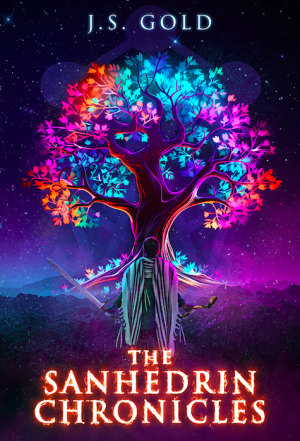In September 2021, A. J. Sidransky and his twenty-seven-year-old son, Jake, set off on a journey propelled by family history, years of genealogical research, and devoted reverence for their ancestors. This memoir, Sidransky’s first work of nonfiction, chronicles the trip through Hungary, Slovakia, and the Czech Republic — serving as a travelogue, a food tour, and a history.
As A. J. and Jake weave their way through Eastern Europe, the author vividly describes famous landmarks, memorials, city streets, small remote villages, and scenic forests and mountains. Yet the realities of the present are shadowed by the old memories. Facism, Nazis, and Communism have left their marks on the people and lands of the once powerful Austro-Hungarian Empire.
The Sidranskys want to better understand the customs, stories, and culture passed down and infused into A. J. as a young Bronx boy living among Hungarian immigrants. This journey’s goal is to feel and imagine their ancestors’ lives and souls and pay homage to their ghosts. Many years of painstaking research have enabled them to map out an itinerary, ascertain facts, dates, and building locations in remote villages. A. J.’s knowledge of Hungarian becomes a helpful aid as they drive along backroads.
The father-son relationship is heightened through their companionship, conversations and shared ideas and thoughts. Both men are appreciative and grateful for this special time together and its deep spiritual effect on them. The duo also finds joy in their celebration and love of food. There’s a great deal of discussion and mouthwatering details concerning Hungarian delicacies on every stop of their adventure. Pastries, plum wines, brandy, and main courses are exquisitely presented. The foods evoke a lifetime of taste and comfort memories for the author. A. J. and Jake even take a strudel-making class in Pest. Many of the recipes of the dishes mentioned are included as a bonus.
As the two explore the remnants of Eastern European Jewish life, the history of this region spanning from Medieval settlements through the events of World War I and World War II as well as the often-circuitous immigration routes of those who left are explained. The Holocaust, the effects of years of Communism destroying Jewish identity, visits to cemeteries, synagogues, family homes, and talks with villagers prompt many reactions from A. J. He discusses his belief in Reconstructionism, his faith and relationship with God, and American Jewry’s religious schisms. Their travels coincide with the High Holidays, and they attend Rosh Hashanah and Yom Kippur services.
Anyone who has ever wondered what life was like for Jews in the “old country” will find this story compelling, touching, and informative. Plums, Paprika & Ghosts provides a fascinating guide for delving into the roots and ghosts of one’s ancestors’ world. Although there are a few cover photos of the trip, including more pictures with captions of the places visited would have greatly added to the reader’s appreciation.
This inspiring story of a life-changing and enlightening experience is one that Sidransky proficiently shares. It’s a history familiar to so many Jewish families and will emotionally resonate with them.
Renita Last is a member of the Nassau Region of Hadassah’s Executive Board. She has coordinated the Film Forum Series for the Region and served as Programming and Health Coordinators and as a member of the Advocacy Committee.
She has volunteered as a docent at the Holocaust Memorial and Tolerance Center of Nassau County teaching the all- important lessons of the Holocaust and tolerance. A retired teacher of the Gifted and Talented, she loves participating in book clubs and writing projects.





